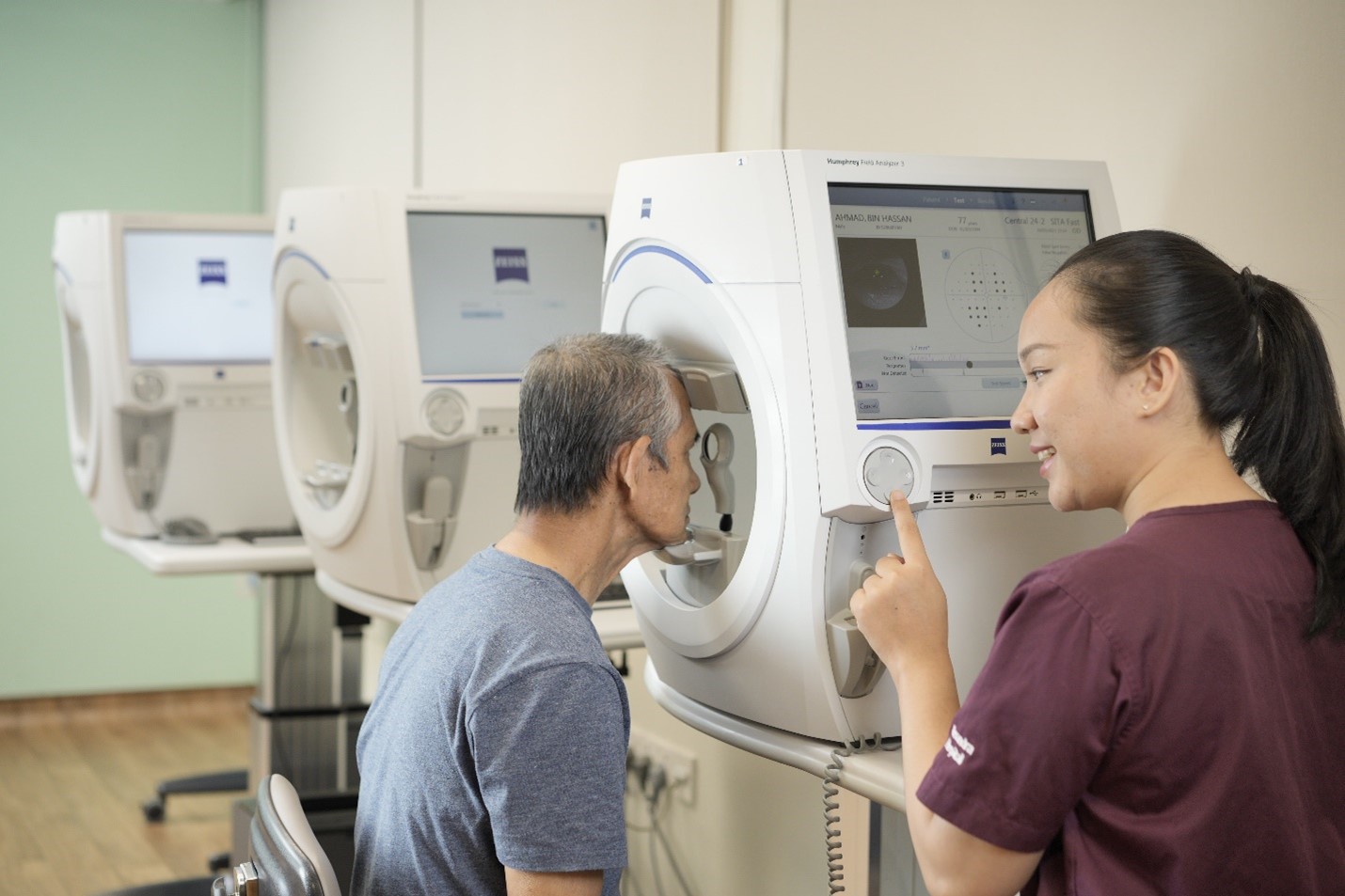
Optometrists are primary healthcare professionals who examine the eyes, detect and diagnose ocular diseases and abnormalities of the visual system and problems related to general health, such as diabetes and hypertension. They are trained to provide comprehensive eye and vision care, prescribe spectacles and contact lenses, manage and refer patients for further treatment if necessary. Optometrists are regulated by the Optometrists and Opticians Board.
'Company culture is the backbone of any successful organisation'.
I enjoy working in Alex and I love the culture we have. I feel that I am given the opportunity to voice my thoughts. A good work culture motivates me every morning to show up and give my best for patients. Alex also supports our personal growth and cares about our overall well-being.
I start the day by looking through the list of patients which helps in the preparation for the day's task. I spend the first half of the clinic session conducting preliminary eye examination such as visual acuity, eye pressure and prescribing optical aids for patients according to their needs, lifestyle, and visual demands. The latter part of the clinic session is dedicated to diagnostic tests. I perform an array of tests, such as visual field assessment, retinal imaging and scans, biometry and ultrasound A-scan procedures. As most of these diagnostic tests focus on the intricate structures at the back of the eye that can be better appreciated when the pupils are big, we often find ourselves in a dimly lit room we refer to as the bat cave! The last lap at work each day will be spent performing and reviewing biometry of patients who are scheduled to undergo cataract surgery by ophthalmologists. These measurements are vital for the calculation of implant to be inserted into patient's eye after surgeon removing their opacified natural lens.
Optometrists can help some of these patients by prescribing optical aids such as spectacles and magnifiers with the aim of improving their vision and daily activities. There is also a growing group of patients with good vision and eye health but suffer from eye strain or discomfort from their spectacles. With the prolonged use of digital devices and increased near work becoming increasingly common, we are seeing a trend of younger group of patients with digital eye strain and fatigue. Our role as optometrists is to update their prescription and recommend appropriate optical aids that can help to alleviate their eye strain.
Aside from prescription of optical aids, we also support the ophthalmologists by performing diagnostic tests which are important in the documentation, monitoring and diagnosis of eye conditions. One such test is biometry or ultrasound A-scan. The accuracy of biometry will impact the outcome of surgery in terms of gross postoperative refractive error. I take pride in doing my work well so that I know my patients will receive the best surgical outcome, minimising their post-surgery optical aids dependency.